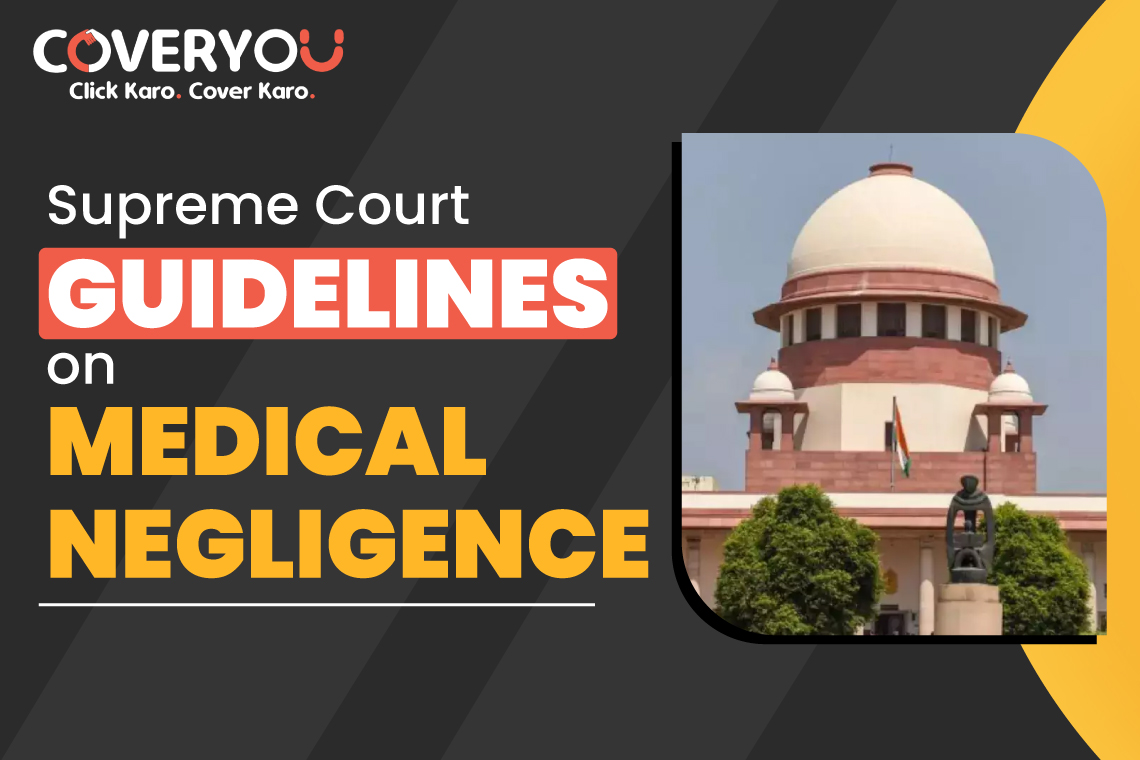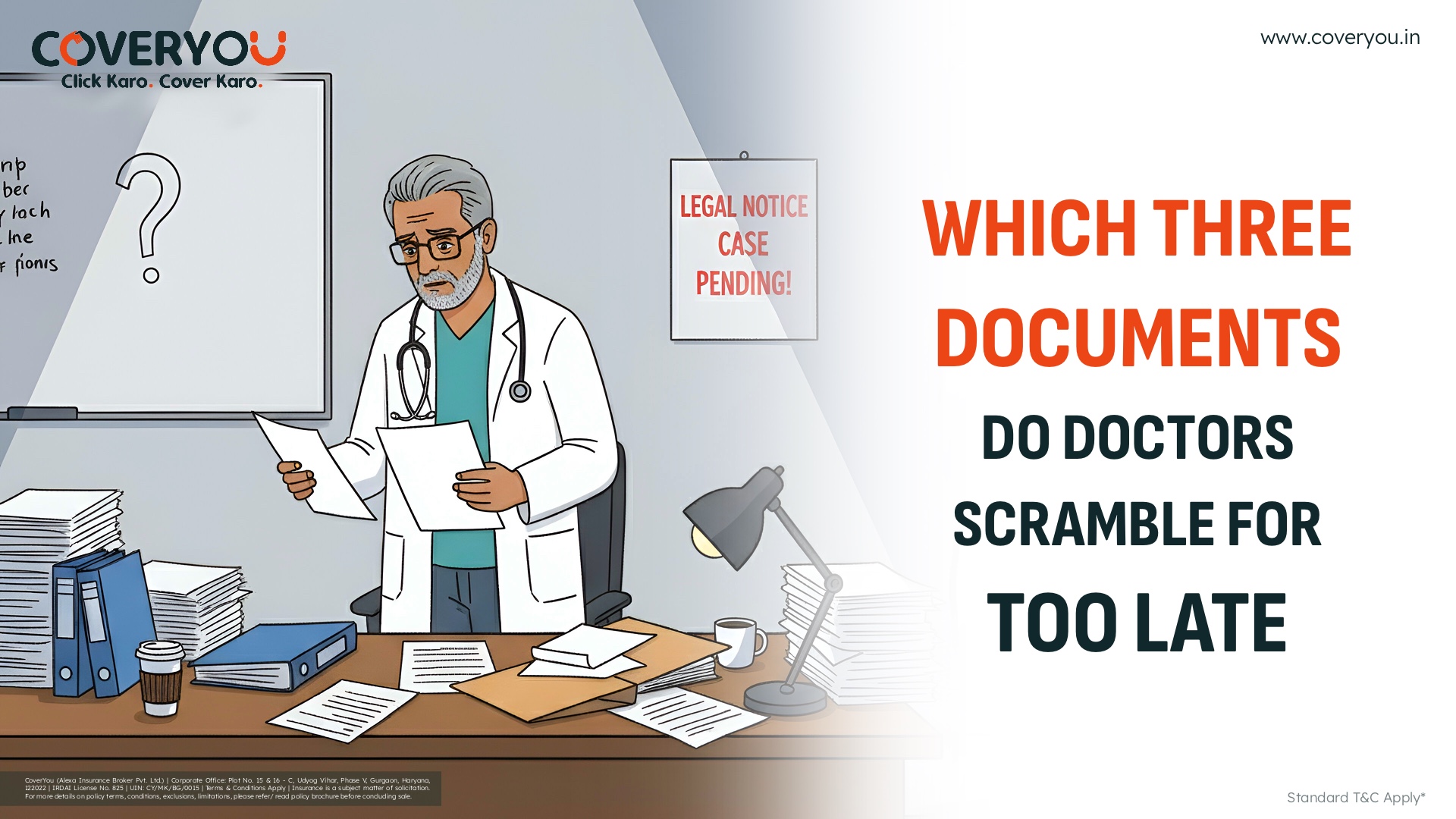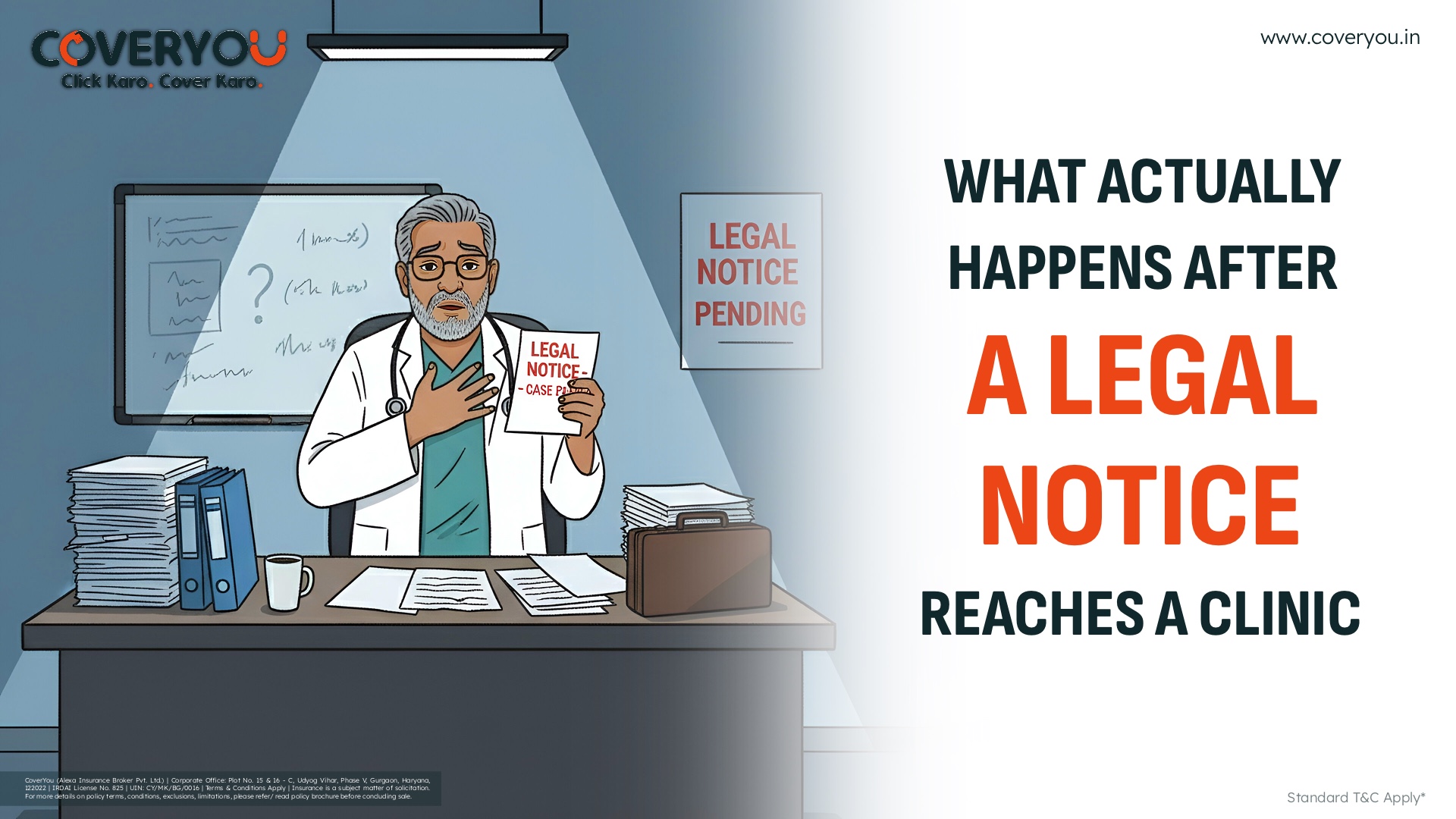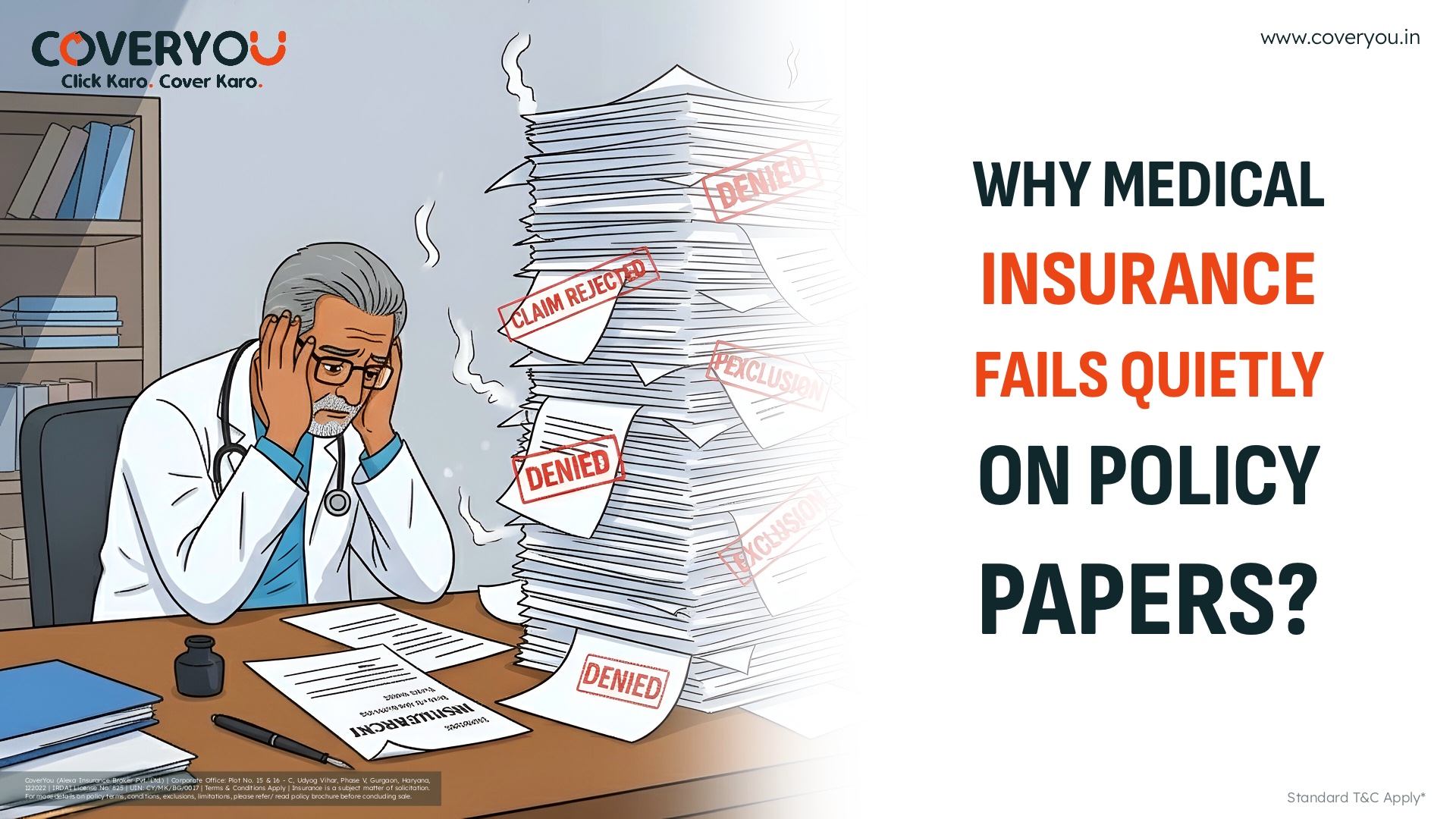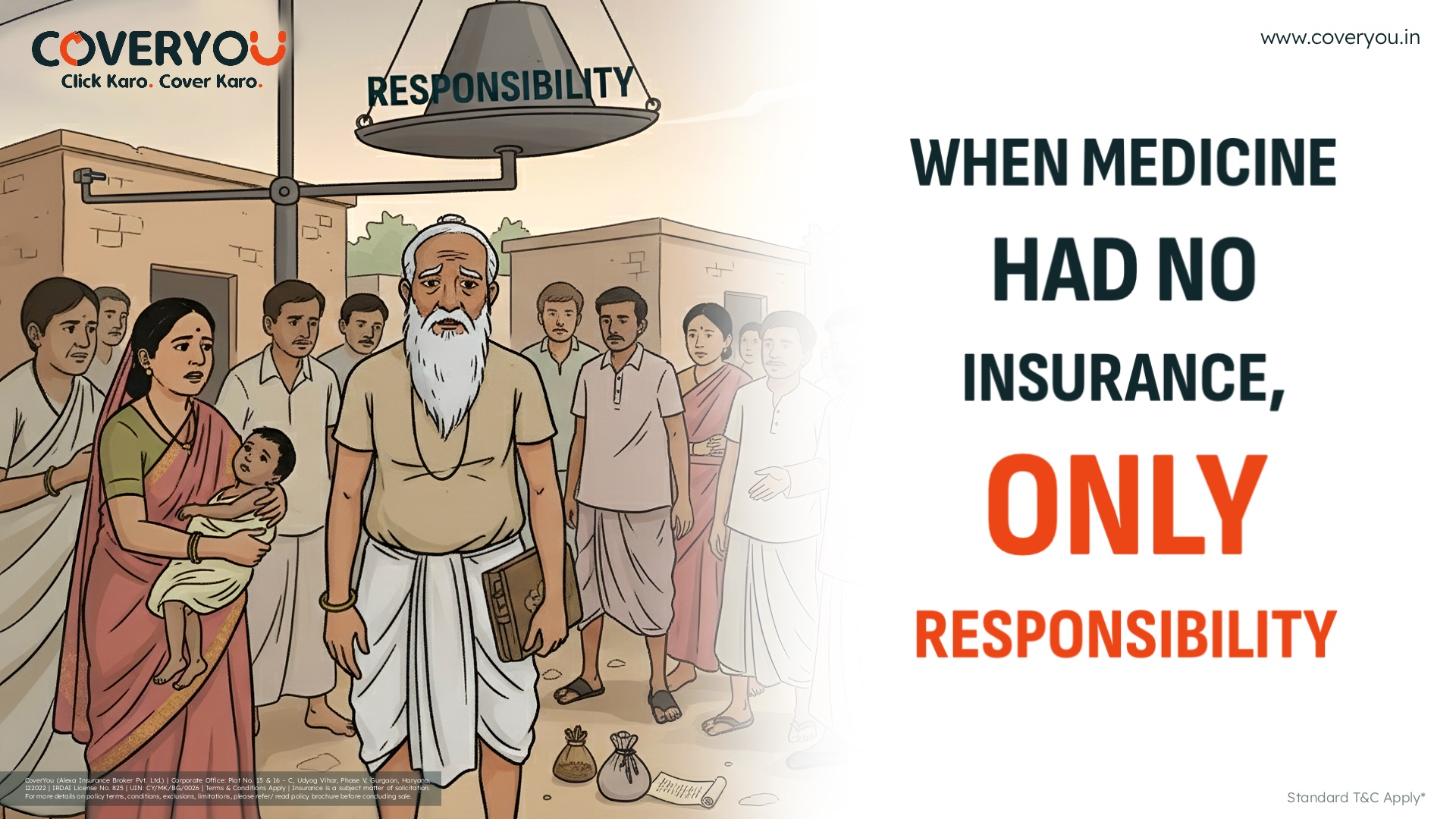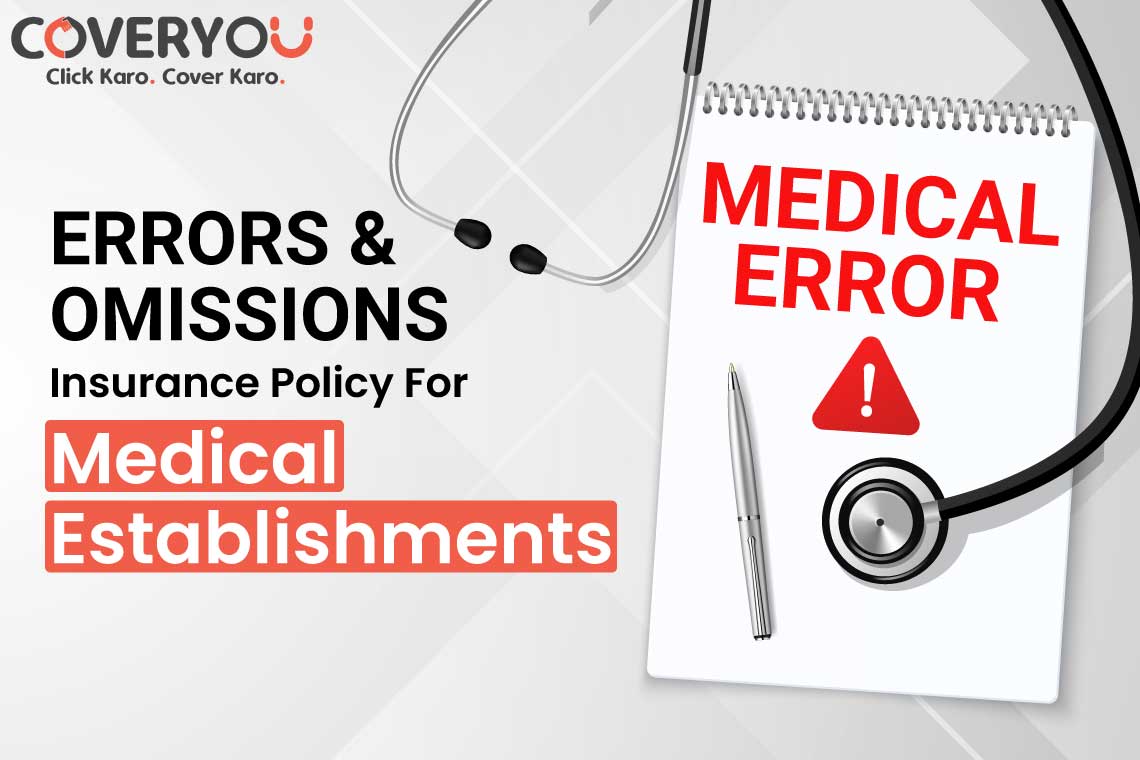Supreme Court guidelines on medical negligence play a pivotal role in defining the legal parameters and responsibilities governing the medical profession, particularly with regard to doctors. As guardians of public health and well-being, doctors are held to exacting standards of care and professionalism. However, medical practice is inherently complex, and the potential for errors or omissions is ever-present. To address these challenges, Supreme Court guidelines provide a structured framework that not only outlines the rights and protections afforded to doctors. But also ensures that patients receive the standard of care they rightfully deserve.
In understanding the crucial role played by Supreme Court guidelines on medical negligence in the healthcare landscape, it becomes evident that having a reliable source of information and guidance is essential for doctors and healthcare practitioners. CoverYou, as a trusted insurance broker licensed by IRDAI, recognizes the significance of medical guidelines and their impact on medical professionals. Through expertly crafted articles, case studies, and legal analyses, this blog helps doctors stay informed about the latest developments in medical negligence law, understanding the nuances of informed consent, deciphering legal precedents, or staying updated on evolving standards of care.
Clarification of What Constitutes Medical Negligence According to Supreme Court Rulings.
-
Duty of Care
- Under the Consumer Protection Act, 1986, Healthcare providers are legally obligated to exercise a duty of care towards their patients. This means they must provide treatment with skill, competence, and diligence.
- A doctor-patient relationship is formed when a healthcare provider agrees to treat a patient. This relationship is fundamental to the duty of care. As it establishes the legal and ethical responsibility of the healthcare provider towards the patient’s well-being.
-
Breach of Duty
- To establish a case of medical negligence, it is crucial to demonstrate that the healthcare provider breached their duty of care by not meeting the standard of care.
- The standard of care is determined by accepted medical practices, which are based on the patient’s specific condition, medical guidelines, and the prevailing medical community standards.
-
Causation
- Proving causation is an essential element in a medical negligence case. It requires demonstrating a direct link between the breach of duty and the patient’s injury or harm.
- In other words, it must be shown that the negligence directly resulted in the patient’s adverse outcomes.
-
Res Ipsa Loquitur
- While not explicitly Indian law, the doctrine of “Res Ipsa Loquitur” can be applicable in cases where negligence is evident. This Latin phrase translates to “the thing speaks for itself.”
- When this doctrine is invoked, the burden of proof shifts to the healthcare provider to demonstrate that they were not negligent. It is often used in cases where the negligence is so clear that no other explanation is reasonable.
-
Informed Consent
- As per Section 2(f) of the Consumer Protection Act, 1986, informed consent is a fundamental requirement in medical practice.
- Patients have the right to be fully informed about the risks, benefits, & alternatives before they can provide their consent for a medical procedure. This ensures that patients make decisions with a clear understanding of what they are agreeing to.
-
Bolam Test
- Although not codified in Indian law, the Bolam test is frequently referenced. It establishes that a doctor is not negligent if they follow a recognized medical practice, even if there are differing opinions within the medical community.
- This test emphasizes that the standard of care should be based on what is considered acceptable by the medical profession at large.
-
Standard of Care
- Healthcare providers are expected to follow the standard of care that is relevant to their field and the specific circumstances of the patient.
- The standard of care can vary based on factors such as the patient’s condition, the available medical knowledge, and established medical practices within the community.
-
Expert Testimony
- Expert medical opinions play a critical role in medical negligence cases. These experts help the court in understanding whether the healthcare provider deviated from the standard of care.
- They provide professional insights on what is considered acceptable practice within the medical community and whether the healthcare provider’s actions constituted negligence.
Burden of Proof in Medical Negligence Cases on Doctors
After a routine surgery at a well-known hospital, a patient faces severe complications, including infections and organ damage. Their condition worsens, leading to more medical treatments and substantial bills. Despite multiple requests and court orders, the hospital and surgeon refuse to provide the patient’s medical records. The court uses “Res Ipsa Loquitur,” which means the thing speaks for itself, because the providers won’t share records. Now, the burden of proof is on the healthcare providers to prove they were not negligent and followed the expected standard of care during surgery and after.
Case Studies :
1 – Unforeseeable Allergic Reaction:
- A patient with no known allergies was administered a common medication during surgery, which unexpectedly triggered a severe allergic reaction.
- Res Ipsa Loquitur was initially invoked, as allergic reactions to this medication are extremely rare. However, during the legal proceedings, it was revealed that the patient had an unusual & undocumented sensitivity.
- In this case, the doctrine was eventually deemed inapplicable, highlighting the importance of considering unforeseeable factors.
2 – Surgical Site Infection:
- Following surgery, a patient developed a surgical site infection. The patient alleged medical negligence, claiming that the infection must have resulted from inadequate sterilization or hygiene practices during the procedure.
- Res Ipsa Loquitur was applied initially, as surgical site infections are generally not expected after a properly performed surgery. However, further investigation revealed that the patient had not followed post-operative care instructions, leading to infection.
- The doctrine was ultimately found inapplicable, underscoring the importance of considering patient compliance and post-operative care.
3 – Post-Operative Pain:
- A patient experienced prolonged post-operative pain following a routine surgical procedure. The patient filed a medical negligence lawsuit, alleging that the pain indicated negligence during the surgery.
- Res Ipsa Loquitur was initially invoked, as persistent, unexplained pain can sometimes signal surgical errors. However, expert testimony established that the patient had an underlying medical condition that contributed to the pain.
- In this case, the doctrine was not applied, emphasizing the need to consider pre-existing conditions and other contributing factors.
How is CoverYou a trustworthy and legitimate source of information for all doctors and helps them get legal and professional help in situations in which doctors are falsely framed ?
- Expertise : CoverYou’s seasoned legal experts help doctors navigate the repercussions of medical negligence.
- Legal Support: They provide access to 10,000+ legal lawyers specializing in medical malpractice defense, offering guidance aligned with the guidelines as per the judiciary system.
- Transparency and Ethics: CoverYou maintains high ethical standards, offering doctors clear and unbiased information about their rights and legal options.
- Comprehensive Resources: They offer tailored resources like articles and guides helping doctors navigate legal challenges.
- Risk Management: CoverYou goes beyond insurance, helping doctors prevent legal disputes, with more emphasis on prevention.
Trusted Reputation: They have a strong reputation for fairness and trustworthiness among doctors and medical associations.
